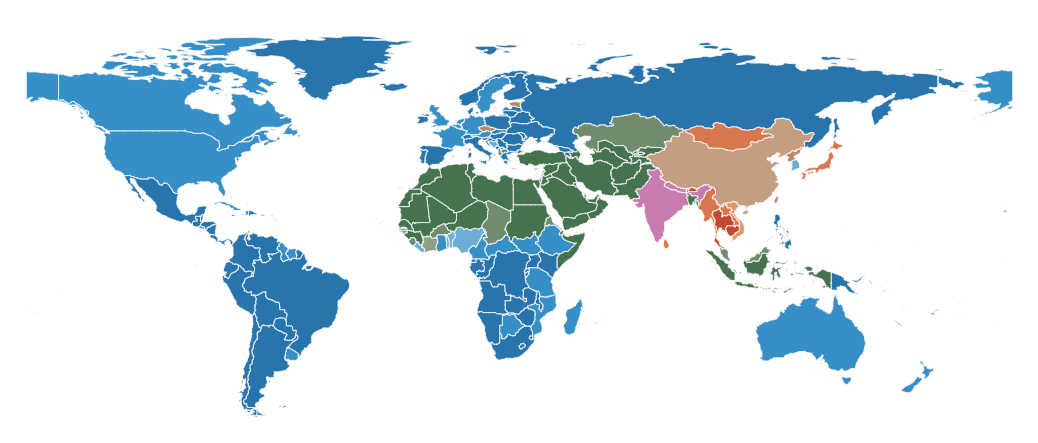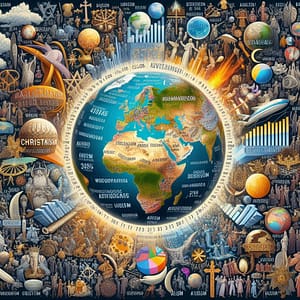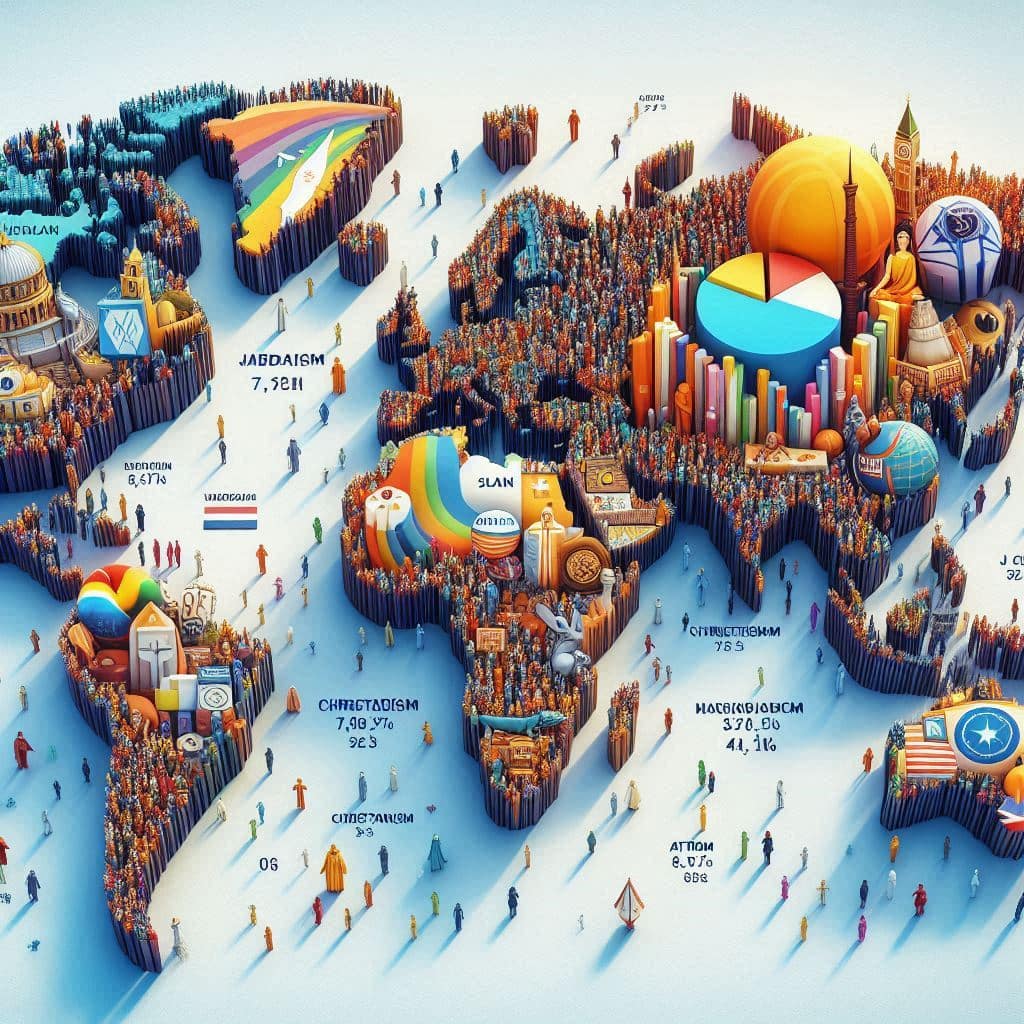2023 World Religion Statistics
2023 Global Belief Distribution and the Impact of Religions: A Comprehensive Analysis
As of 2023, world beliefs present a remarkable picture in terms of diversity and richness. Beliefs constitute a significant part of humanity's cultural heritage while playing a major role in shaping societal values and individual identities. In this article, we will delve into the global belief distribution in 2023, examine the most prevalent beliefs, provide striking statistics on the worldwide distribution of these beliefs, and assess the global impact of religions.
Distribution of World Religions
Today, a significant portion of the world's population belongs to a religion. Christianity, Islam, and Hinduism stand out as the most widespread religions globally. The combined population of these three religions constitutes more than half of the world's population. Below is the distribution of the world's population by religion as of 2023:
- Christianity: 2.4 billion (approximately 30.8% of the world's population)
- Islam: 1.9 billion (approximately 25% of the world's population)
- Hinduism: 1.2 billion (approximately 15% of the world's population)
- Buddhism: 535 million (Approximately 7% of the world's population)
- Folk Religion: 430 million (Approximately 6% of the world's population)
- Other Religions: 61 million (Approximately 1% of the world's population)
- Ungodly: 1.2 billion (approximately 15% of the world's population)

As can be seen from the data above, Christianity stands out as the most widespread religion worldwide, followed by Islam and Hinduism. Buddhism, Folk religion, and other religions constitute a smaller portion of the world's population. Additionally, a significant portion of the world's population (15%) states that they do not belong to any religion.
Global Distribution
Christianity: The World's Most Widespread Faith
According to 2023 data, Christianity stands out as the world's most widespread religion with approximately 2.4 billion believers. Christianity, encompassing various denominations such as Catholicism, Protestantism, and Orthodoxy, is widely embraced in Europe, the Americas, and Sub-Saharan Africa. The fundamental principles of Christian belief include faith in Jesus Christ, adherence to the holy book Bible, and embracing values like love, compassion, and forgiveness.
Islam: A Growing Faith
With approximately 1.9 billion believers, Islam stands out as the world's second-largest religion. Prevalent in the Middle East, North Africa, South Asia, and Southeast Asia, Islam has shown rapid growth in recent years. The fundamental principles of Islamic belief include faith in Allah, the prophethood of Muhammad, adherence to the Quran, and the performance of acts of worship such as prayer, fasting, almsgiving, and pilgrimage.
Hinduism: India's Ancient Faith
With 1.2 billion believers, Hinduism stands out as the world's third-largest religion. Prevalent in India and Nepal, Hinduism is based on a polytheistic belief system. The fundamental principles of Hindu belief include concepts such as reincarnation, karma, dharma, and moksha.

Buddhism: Asia's Peaceful Faith
With approximately 535 million believers, Buddhism stands out as the world's fourth-largest religion. Prevalent in East Asia and Southeast Asia, Buddhism is a belief system founded by Siddhartha Gautama (Buddha). The fundamental principles of Buddhist belief include concepts such as the Four Noble Truths, the Eightfold Path, and nirvana.
Other Faiths: Judaism, Sikhism, and Others
In addition to Christianity, Islam, Hinduism, and Buddhism, other beliefs such as Judaism, Sikhism, Confucianism, Taoism, Jainism, and Shintoism are also embraced worldwide. Although these beliefs constitute less than 1% of the world's population, they hold great cultural and historical significance.
Nonbelief: A Growing Stance
According to 2023 data, approximately 15% of the world's population states that they do not believe in any religion. Nonbelief is particularly prevalent in regions such as Europe, North America, and Oceania. Nonbelievers often shape their worldview based on rational thought, scientific evidence, and personal experiences. Nonbelief tends to exhibit a critical stance towards religious authority and dogmas.
Within this group, there are individuals with different views such as atheists, agnostics, and deists. Atheists do not believe in the existence of any god, while agnostics argue that it is impossible to have definitive knowledge about the existence or nonexistence of god. Deists, on the other hand, believe in the existence of a god who created the universe but do not think that this god intervenes in the workings of the universe.

The Global Impact of Religions
Religions play a significant role in shaping the lives of individuals and societies worldwide. Religious beliefs influence individuals' values, moral principles, and worldviews, which in turn shape societal norms, cultural values, and political structures. Religions also play important roles in areas such as education, healthcare, aid activities, and conflict resolution.
Conclusion: The Importance and Future of Beliefs
The global belief distribution in 2023 reveals the diversity and richness of beliefs worldwide. Beliefs play a crucial role in shaping the identities of individuals and societies, transmitting values, and ensuring social harmony. In the future, changes in the distribution of world beliefs are expected due to factors such as global population growth, migration movements, and cultural interactions.
Sources on Religion Statistics:
Pew Research Center
World Religion Database
Gordon-Conwell Theological Seminary
CIA World Factbook


